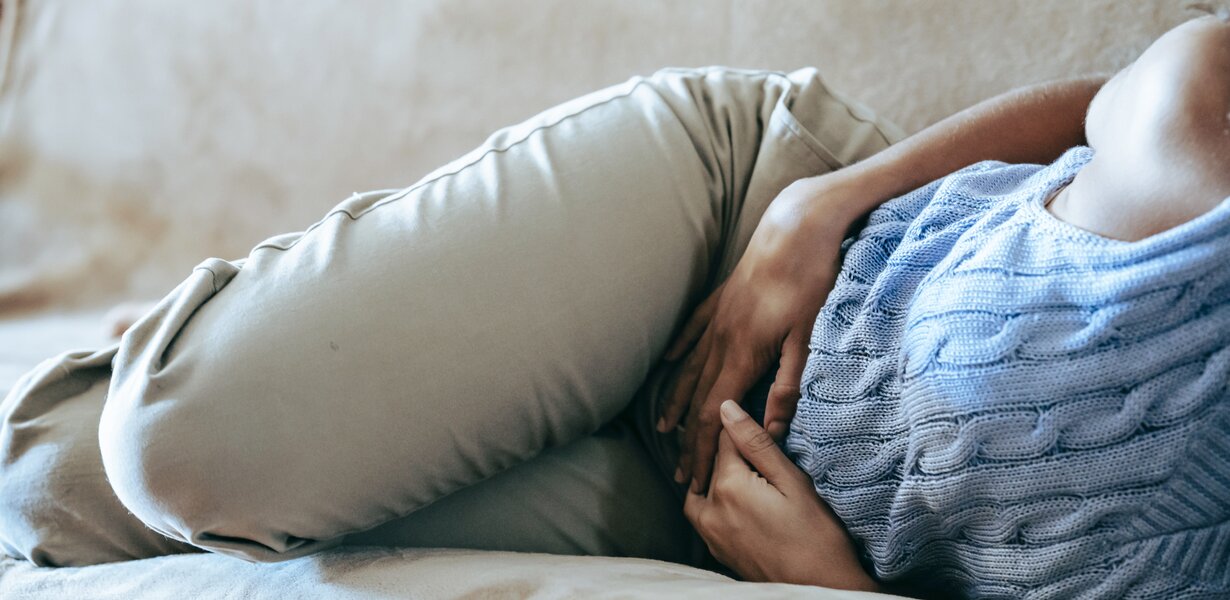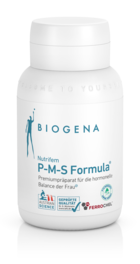Why is it that yesterday you were completely at ease with yourself and the world and today everything is completely upside down? You hate your face in the mirror, your bra pinches, chocolate is irresistable – and your partner is also getting on your nerves. Just take a look at the calendar! It is quite possible that you are just before your period and that PMS has you firmly in its grip. But what do you do if you become a victim of your hormones every month?
What is PMS?
Almost every woman has experienced premenstrual syndrome (PMS) in her body or via her moods. For everyone it’s different, because PMS includes a range of more than 150 physical and mental symptoms that occur in varying intensity and frequency in the days before your period, but then disappear once it starts.
Approximately 25% of all women suffer from this phenomenon every month, whereby the main complaints affect those over 30. Approximately 3 to 8% of women suffer from a particularly stressful form of PMS, so-called premenstrual dysphoric disorder (PMDS). Those affected turn into a different person in the second half of the cycle – they behave in an unusually tearful, depressed, irritable and sometimes even highly aggressive manner.
It is the days before a period when many women suddenly feel uncomfortable in their own skin. The recurrent ups and downs of hormones not only decide on the fertile and infertile days of a woman, but can also darken physical and mental well-being.
What are the causes of PMS?
The exact triggers of PMS are still not fully known despite decades of research. It is certain that PMS is cycle-dependent. This is because the symptoms always occur in the second half of the cycle – when progesterone increases and the oestrogen level decreases. But not every woman reacts in the same way to hormone fluctuations. For example, amongst women with an identical hormone status, there are some who suffer from PMS, whilst others do not.
This brings additional factors into play. In addition to lifestyle and genes that make certain hormones more sensitive, there is the influence of various messenger substances and hormones (including melatonin, prolactin and cortisol). The happiness hormone serotonin, whose concentrations drop gradually in the second half of your cycle before they hit rock bottom shortly before your period, could be of particular interest in this context. Women with PMS seem to be lacking a big dose of happiness in particular, because they generally have less serotonin than women who experience the second half of their cycle without symptoms.
How long does PMS last?
The premenstrual syndrome is a condition that affects the second half of the cycle and can wreak havoc a few days to a full two weeks before your period. The symptoms improve radically once your period starts.
Typical PMS symptoms
Your breasts are taut, you back painful, you break out in spots and your mood is at rock bottom. PMS is a real kaleidoscope that illustrates different facets in every woman. Some of those affected can be plagued by one or two symptoms only, whilst others experience a whole spectrum of symptoms.
Typical physical PMS symptoms include:
- Taut breasts
- Bloating
- Cravings or loss of appetite
- Feeling of pressure in the lower abdomen
- Distended abdomen
- Weight gain
- Hot flushes, sweating
- Skin blemishes
- Circulatory problems including dizziness
Typical psychological changes during PMS are:
- Irritability
- Mood swings
- Lack of desire
- Exhaustion
- Sleep disorders
- Depression










